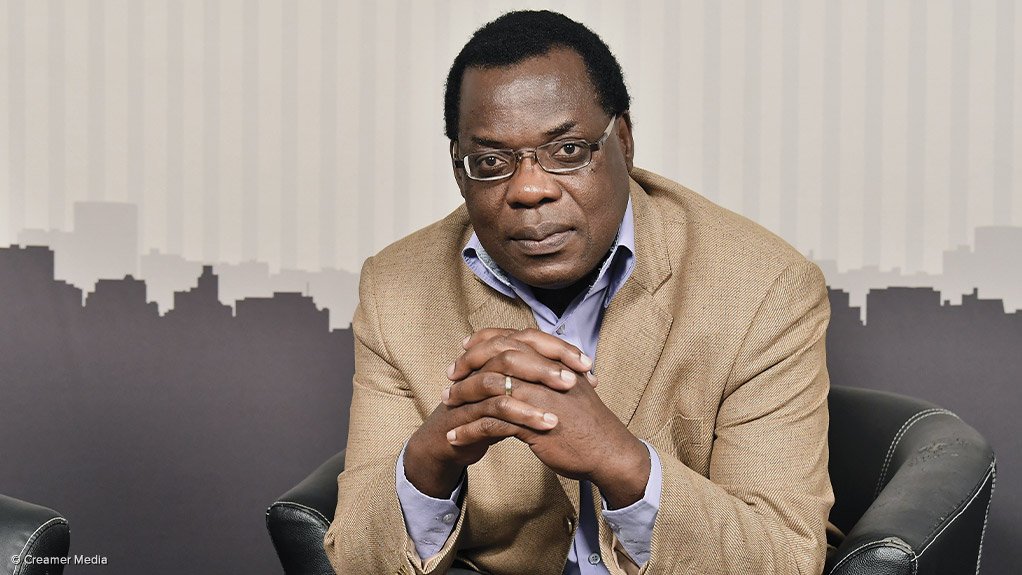In this opinion piece, Engineering News Senior Deputy Editor Martin Zhuwakinyu writes about the positive impact of Home Affairs Minister Aaron Motsoaledi's decision to cancel the requirement of unabridged birth certificates for children travelling to South Africa.
Tourism is something of a cash cow for South Africa. Narrowly defined, the sector accounts for 2.9% of the country’s gross domestic product, but the figure jumps to 8.6% when supply chain linkages and the total value creation across the economy is taken into consideration. The tourism workforce is estimated at 726 000, with a similar number of South Africans occupying tourism-dependent jobs outside the sector.
It thus boggles the mind that Malusi Gigaba, the former Home Affairs Minister who unceremoniously vacated his position last year, saw fit to impose restrictions on foreigners travelling to these shores with minor children. One such restriction was a requirement for children travelling with their parents to have an unabridged birth certificate and a consent letter from a parent who is not travelling with them. This rendered South Africa a highly family-unfriendly travel destination.
Gigaba should have known, from South Africans’ experiences with our own Home Affairs, that, anywhere in the world, government departments and agencies that are tasked with the issuance of documents like birth certificates and IDs are not the most efficient of organisations.
The upshot of Gigaba’s folly – this is what it was, really – was that potential foreign travellers to South Africa who were not prepared for the palaver of standing in long queues and filling out form after form to secure an unabridged birth certificate simply gave Mzansi a wide berth.
Gigaba and those who advised him might have thought South Africa was God’s gift as far as tourism goes. But they were wrong. Tourist arrivals tumbled as foreigners seeking to travel the world opted for more welcoming destinations. Whereas an estimated 10.5-million international tourists visited South Africa in 2018, by the end of September this year, the number had declined by 1.4% on a year-on-year basis.
The sliding tourist arrivals in South Africa contrast with an upward trend in the rest of the continent, which played host to 67-million tourists in 2018, a 7% increase on the previous year. This made the continent the second-fastest-growing tourist destination after Asia-Pacific.
The rise in African tourist arrivals is not just happening – it is the result of positive policy changes, coupled with increased investment in the sector. A classic example of this is Ethiopia, which, through relaxing visa restrictions and improving flight connectivity, has transformed its capital city of Addis Ababa into a regional transport hub that has even overtaken Dubai as the world’s gateway to Africa. This has seen the country become the fastest-growing travel country in Africa, growing by 48.6% in 2018, according to a recent report from Jumia Travel, an online travel agency.
Across the continent, business visitor numbers, in particular, have been boosted by business-enabling reforms by governments that have seen the potential in diversifying the sector. Kenya, Rwanda and South Africa are examples of countries that are implementing initiatives to position themselves as international venues for conferences and exhibitions. It is plausible to assume that South Africa’s efforts in this regard could have been offset somewhat by Gigaba’s move. I mean, a business mogul travelling to South Africa to attend a conference in Cape Town might want to bring the family along and sample the Mother City’s tourist attractions once he is done with listening to conference speeches and conducting one-on-one meetings. But then the Gigaba restrictions could be a put-off for him if he had young children.
It is against this background that I laud current Home Affairs Minister Aaron Motsoaledi, who, in the few months he has presided over this key portfolio, has launched a few initiatives that should help improve the fortunes of the South African tourism industry. He has granted visa-free entry to visitors from key tourist source countries and has been working flat out to introduce an e-visa regime.
Earlier this month, Motsoaledi, who became Home Affairs Minister after the May elections, waived the Gigaba requirements, in a development that should boost tourist arrivals.
South Africa needs people like Motsoaledi, who realises that tourism on the continent is poised to grow, what with the imminent coming into effect of the African Continental Free Trade Area.
EMAIL THIS ARTICLE SAVE THIS ARTICLE ARTICLE ENQUIRY
To subscribe email subscriptions@creamermedia.co.za or click here
To advertise email advertising@creamermedia.co.za or click here











